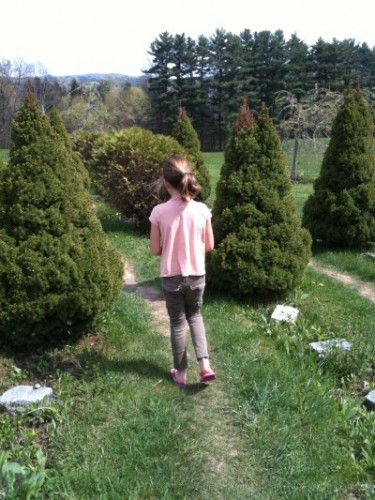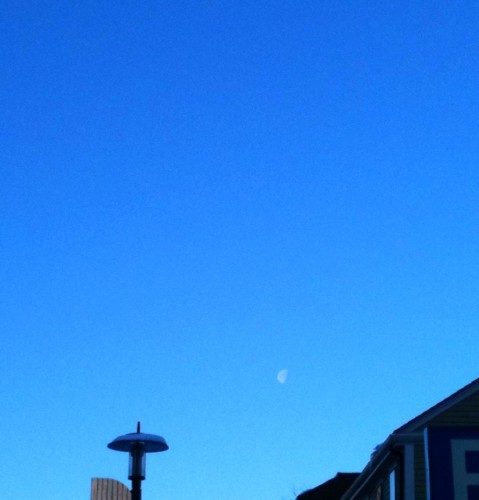
Sometimes I stagger under the weight of my own feelings. This season has turned so swiftly from one of relative calm to one of choppy seas and brand new changes, and I am still struggling to find my balance. On a daily basis, both my anxiety and my good fortune overwhelm me. How to take the measure of each? I can’t. I can only seesaw back and forth between moments of panic and those of intense awareness of how good my life is. Maybe it is precisely this gratitude that makes the uncertainty feel so perilous.
There are moments when I am literally brought to my knees by a sharp reminder of something that is lost or by a breathtaking pang of fear about what may come. But then, often, in the wake of those powerful emotions comes the world, weak but undeniable in its insistence that I open my eyes.
Yesterday, Julie Daley tweeted a beautiful line by Rumi: “I can’t stop pointing to the beauty.” This is so right, and so true; while I am occasionally swamped by bleakness, almost always there are faint fissures in the dark through which light, and reminders of goodness, can creep.
The suddenness with which this has become an uncertain and unstable time cautions me, again, not to ever grow too attached to the way things are in a specific moment. It all changes. I’m thrashing around in these suddenly stormy waters, but trying to keep my eyes on the light, on the cracks, on the sunrises where I can still see the moon (the picture above was taken on the way to Jerusalem, when we landed in Madrid at dawn). There is so much loss, and so much fear, and it is easy for me to lose sight of the beauty all around. It doesn’t make up for some of the heartbreak, and certainly doesn’t take away the roiling anxiety, but it can ameliorate it. Some of it.


